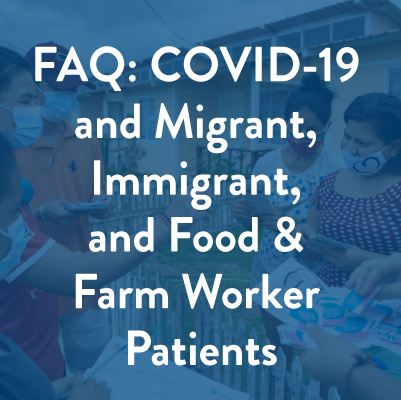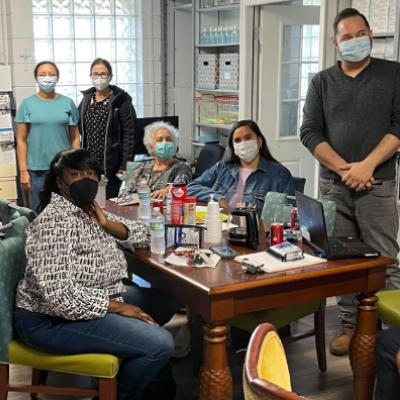- Who We Are
- Clinician Employment
- Publications
- Witness to Witness (W2W)
- Kugel & Zuroweste Health Justice Award
- Your Voice Matters: Photovoice Project
Thu, 06/23/2016 | by Claire Hutkins Seda


Today, the US Supreme Court Justices were split 4-4 in US v. Texas, the case deciding on President Obama’s executive actions on immigration. With the split vote, the lower court’s ruling against the immigration programs stands. The decision effectively halts the implementation of Deferred Action for Parents of Americans (DAPA) and an expansion of Deferred Action for Childhood Arrivals (DACA). The two programs combined would have allowed roughly 4.5 million immigrants to apply for protection from deportation. Thousands of migrant workers without authorization would have been served under the programs; it is estimated that about 700,000 farmworkers and their families are among those who were eligible.
“We are very disappointed in this decision,” said Karen Mountain, RN, MSN, MBA, Chief Executive Officer of Migrant Clinicians Network. “The decision is a decided blow to the health of the migrant populations we serve.”
Health access among migrant workers is already strongly limited by a number of overlapping barriers, including language and cultural differences, transportation issues, and unfamiliarity with available health services. This Supreme Court decision compounds these hurdles. Fear and uncertainty over immigration status prevents people from seeking out care when they need it most. As clinicians, we at Migrant Clinicians Network are deeply disappointed that thousands of migrant and other underserved workers in our communities may allow their health needs to go unmet for fear of detention or deportation away from their family and community.
Additionally, the health effects of living under the threat of deportation are serious. Fear and uncertainty in one’s day-to-day life are a serious health risk in itself -- not just for the immigrant lacking authorization, but for his or her whole family. US citizen children of immigrants who lack authorization are found to have increased levels of anxiety, depression, and elevated distress, just as is found in their non-citizen counterparts. This decision throws thousands of families, many of mixed citizenship, back into chronic stress. For workers, documentation status has been identified as an occupational hazard -- meaning that workers see lack of authorization as increasing one’s risk of injury on the job. This provides further evidence of the health repercussions of this decision. By rejecting DACA and DAPA, the US Supreme Court has greatly challenged both the health and the health access of an already vulnerable population.
Read more about the health implications of this decision on our recent blog post, “DAPA in the Spotlight.”
Like what you see? Amplify our collective voice with a contribution.
Got some good news to share? Send it to us via email, on Facebook, or on Twitter.
Return to the main blog page or sign up for blog updates here.







